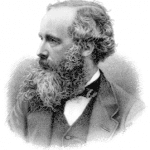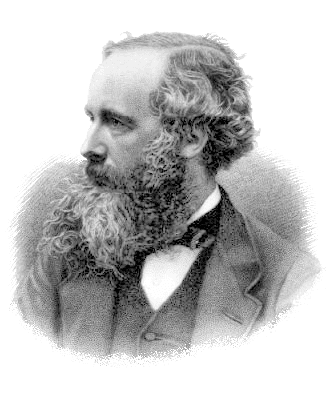
I first ran across former Christian minister and atheist John W. Loftus back in 2006. We dialogued about the problem of evil, and whether God was in time. During that period I also replied to an online version of his deconversion: which (like my arguments about God and time) he didn’t care for at all. I’ve critiqued many atheist deconversion stories, and maintain a very extensive web page about atheism. In 2007 I critiqued his “Outsider Test of Faith” series: to which he gave no response. Loftus’ biggest objection to my critique of his descent into atheism was that I responded to what he called a “brief testimony.” He wrote in December 2006 (his words in blue henceforth):
Deconversion stories are piecemeal. They cannot give a full explanation for why someone left the faith. They only give hints at why they left the faith. It requires writing a whole book about why someone left the faith to understand why they did, and few people do that. I did. If you truly want to critique my deconversion story then critique my book. . . . I challenge you to really critique the one deconversion story that has been published in a book. . . . Do you accept my challenge?
I declined at that time, mainly (but not solely) for the following stated reason:
Throughout August 2019, I critiqued Dr. David Madison, a prominent contributor to Loftus’ website, Debunking Christianity, no less than 35 times. As of this writing, they remain completely unanswered. I was simply providing (as a courtesy) links to my critiques underneath each article of Dr. Madison’s, till Loftus decided I couldn’t do that (after having claimed that I “hate” atheists and indeed, everyone I disagree with). I replied at length regarding his censorship on his website. Loftus’ explanation for the complete non-reply to my 35 critiques was this: “We know we can respond. It’s just that we don’t have the time to do so. Plus, it’s pretty clear our time would be better spent doing something else than wrestling in the mud with you.” He also claimed that Dr. Madison was “planning to write something about one or more of these links in the near future.” Meanwhile, I discovered that Dr. Madison wrote glowingly about Loftus on 1-23-17:
When the history of Christianity’s demise is written (it will fade eventually away, as do all religions), your name will feature prominently as one who helped bring the world to its senses. Your legacy is secure and is much appreciated.
This was underneath an article where Loftus claimed: “I’ve kicked this dead rodent of the Christian faith into a lifeless blob so many times there is nothing left of it.” I hadn’t realized that Loftus had single-handedly managed to accomplish the stupendous feat of vanquishing the Hideous Beast of Christianity (something the Roman Empire, Muslims, Communists, and many others all miserably failed to do). Loftus waxed humbly and modestly ten days later: “I cannot resist the supposition that my books are among the best. . . . Every one of my books is unique, doing what few other atheist books have done, if any of them.”
These last three cited statements put me “over the edge” and I decided to buy a used copy of his book, Why I Became an Atheist (revised version, 2012, 536 pages) and critique it, as he wanted me to do in 2006. Moreover, on 8-27-07 he made a blanket challenge about the original version of this book: “I challenge someone to try this with my book. I might learn a few things, and that’s always a goal of mine. Pick it up and deal with as many arguments in it that you can. Deal with them all if you can.” His wish is granted (I think he will at length regret it), and this will be my primary project (as a professional apologist) in the coming weeks and probably months.
Despite all his confident bluster, I fully expect him to ignore my critiques. It’s what he’s always done with me (along with endless personal insults). I’m well used to empty (direct) challenges from atheists, based on my experience with Madison and “Bible Basher” Bob Seidensticker, who also has ignored 35 of my critiques (that he requested I do). If Loftus (for a change) decides to actually defend his views, I’m here; always have been. And I won’t flee for the hills, like atheists habitually do, when faced with substantive criticism.
The words of John Loftus will be in blue.
*****
John Loftus’ chapter 2 is entitled, “Faith, Reason, and My Approach to Christianity” (pp. 39-63).
It’s well beyond my purview and purpose in these critiques to tackle all of the various brands of philosophy of religion and strains and varieties of Christian apologetics. Reasonable Christians (and atheists) can differ in good faith about their relative strengths and weaknesses.
So I’ll confine myself to what I think are outright misunderstandings of misrepresentations of Christian views: particularly as expressed in inspired Scripture. I agree with Loftus when he writes (p. 44): “I understand these are complex issues, which unfortunately, I can’t devote the needed space to . . .” He knows that this is a “large and lumpy” area of thinking; so do I.
I maintain a very extensive Philosophy, Science & Christianity web page, if readers want to see how I argue various positions, and how I come down on all the internal differences about how to defend Christianity and larger theism. I summed up on Facebook — in a very “nutshell” way — my overall philosophy of religion:
My Opinion on “Proofs for God’s Existence” Summarized in Two Sentences
My view remains what it has been for many years: nothing strictly / absolutely “proves” God’s existence. But . . .
I think His existence is exponentially more probable and plausible than atheism, based on the cumulative effect of a multitude of good and different types of (rational) theistic arguments, and the utter implausibility, incoherence, irrationality, and unacceptable level of blind faith of alternatives.
In my first installment, I noted how Loftus stated that “I present a cumulative case argument against Christianity. . . . I consider this book to be one single argument against Christianity, and as such it should be evaluated as a whole.” (p. 15; his italics)
I replied:
That’s exactly how I view my body of apologetics (50 books and over 2500 blog articles) in favor of Christianity and (in particular) the collection of diverse argumentation I have set forth in critique of atheism.
Just as Loftus considers his overall case against Christianity long and multi-faceted and complex (laid out in “one single argument” in a densely argued 536-page book); likewise, I consider my case for Christianity and against atheism to be very multi-faceted and complex and only able to be fully understood with very extensive reading of my 2500+ articles and 50 books (not all, of course, but quite a few!).
What our views have in common is that we both regard them as “a cumulative case.” There is no one single argument on either side (I think he’d agree, as I’m pretty sure would most atheists and apologists and philosophers of religion) that is a “knockout punch”. Loftus agrees, on page 54:
When it comes to Christian apologetics, the best approach seems to be the cumulative case method of the late Paul D. Feinberg . . . This best explains why there is no single apologetical approach that will cause people to convert, and it bets explains why there is no silver bullet argument that will convince believing Christians to abandon their faith.
***
Scientific evidence, the evidence of the senses, and reasoning based on this evidence is what counts. (p. 44)
[W]hen I came to see things differently, sufficient evidence derived from science-based reasoning became the only game in town, so to speak, . . . the scientific method is the best (and probably the only) reliable guide we have for gaining the truth . . . (p. 57)
Here is where Loftus runs into what I consider to be insuperable problems, and self-refuting tenets. What he just described is empiricism, which is the philosophical outlook that senses and observations of physical things allow us to discover facts and truth. It’s fine as far as it goes (it’s the fundamental basis of science), but it just doesn’t go far enough or explain everything. There are many different ways of knowing (even mathematics and logic: both basic building-blocks of science, are axiomatic and non-empirical). We readily observe that this very sentence from Loftus is self-defeating:
1) He makes an epistemological statement about “what counts” [strongly implied, all that counts] in determining truth.
2) This very statement is not empirical. It is strictly philosophical, or metaphysical: about the relative value or worth of empiricism.
3) But if empirical observations are all that we can trust, and all that “count”, then his sentence has to be discounted, since it is not an empirical observation.
4) Ergo, it is self-defeating and self-refuting.
I’ve dealt with this false, misguided, tunnel vision “science only” or “scientism” mentality (very common in atheism) many times and from many different angles:
Atheist Myths: “Christianity vs. Science & Reason” (vs. “drunkentune”) [1-3-07]
Reply to Atheist Scientist Jerry Coyne: Are Science and Religion Utterly Incompatible? [7-13-10]
Christianity: Crucial to the Origin of Science [8-1-10]
Christians or Theists Founded 115 Scientific Fields [8-20-10]
Simultaneously Dumb & Smart Christians, Atheists, & Scientists [10-9-15]
Is Christianity Unfalsifiable? Is Empiricism the Only True Knowledge? [5-6-17]
Science, Logic, & Math Start with Unfalsifiable Axioms [1-6-18]
Science: “only discipline that tells us new things about reality” [???]: Scientism or Near-Scientism as a Very Common Shortcoming of Atheist Epistemology [8-9-18]
Rebuttal of Seidensticker’s Anti-Christian Science “History” [8-11-18]
*
I have never thought that Pascal’s wager was a particularly strong argument: if an argument at all. But it is a clever thought experiment and something to definitely seriously consider. Again, this is beyond the purview of my purposes, so I’ll pass. Though I love Pascal (and Alvin Plantinga, Kierkegaard, William Lane Craig, the Late Norman Geisler, gary Habermas, and others he mentions in this chapter), I’m not here to defend every school and argument of the entire history of apologetics. I’m already devoting what will be many hundreds of hours to this long project. My purpose is to critique errors I see in Loftus’ own views, per my titles: “Loftus Atheist Error # . . .”
*
On pages 50-51, Loftus develops an interesting (though thoroughly fallacious and weak) “New and Better Kind of Wager.” He reasons that it would be a better state of affairs if God asked us “if we want to be born, knowing the risks involved”: including the calculus and consideration of a possibility of ending up in an eternal hell. “Why wouldn’t God give us a choice in the matter? It seems unethical for him not to do so . . . If I were given the choice, I would simply say, ‘No, count me out! Put me out of existence now.’ “
*
This stimulates several responses in my mind (which is a major reason why I absolutely love dialogue and back-and-forth discussion: because it can do that):
*
1) I think it’s foolish to imagine and posit that he himself and many or most people would choose to be annihilated rather than to live a life on the earth. There is no good reason to believe this, that I can see. It’s essentially the view that we would all commit suicide, given the choice in the beginning: except that it would be an assisted suicide, with God’s help. I see no indication — by analogy of how relatively few people commit suicide in this world — that many folks would make this choice.
*
And if Loftus would have done so, then, by his own reasoning (and a reductio ad absurdum) he would have to argue that people (including he himself) should kill themselves today (if they thought there was a God and a hell, or even that both might exist), since the potentialities and hypotheticals remain the same. Atheist or no, the great bulk of people in the world are simply not that hopeless and nihilistic. Of course, Loftus doesn’t believe in God, and all of this is a mere hypothetical and mind game. But he is attempting to make a reasoned argument against the biblical God, and this doesn’t succeed in that purpose at all.
*
2) I note in passing (consider this a “footnote”) that it is highly ironic that a person who believes in legal abortion is making an argument that all of us: at the beginning of our existence, should be asked whether we want to live or not. To be consistent, the one who is pro-abortion and who has an abortion, would contradict this: all the more so in the atheist’s case, since they eliminate the only life that baby will ever have (there being no afterlife). If Loftus thinks “it seems unethical for him [God] not to do so” I don’t see how he can possibly favor legal abortion, since it is radically anti-choice for the baby about to be killed (and in atheist metaphysics and ontology, annihilated and made nonexistent forever).
*
3) I submit that it is absurd for God to ask a question of a human baby (which would presuppose that God temporarily gave them a mind that could reason enough to even have such a momentous discussion) about these things, when there are so many unknown factors. Obviously, in Christian belief, God is omniscient, and He deems it a good thing for human beings to “be fruitful and multiply.” For God, and for us Christians and pro-lifers, who consider life infinitely valuable and priceless, the very scenario is meaningless. Of course, life and creation as a whole is good and wonderful, and it is better to exist than not to. This is virtually self-evident for all who haven’t committed suicide, and the extremely strong instinct to preserve our own lives is evidence of it as well.
*
4) In making his argument, Loftus smuggles in many notions that are false premises, to start with: thus making his conclusion erroneous or at the very least, dubious and indefensible.
*
a) He says “we might not be raised in the right Christian family and might therefore be sent to hell because of it.” This is silly, simplistic argumentation. Granted, we all can have good or bad influences in many ways, that was beyond our choice. But in the end, the biblical view is that each individual is given enough grace and power to be saved,
if they make that choice, and that each will be individually responsible:
Ezekiel 33:17-20 (RSV) “Yet your people say, `The way of the Lord is not just’; when it is their own way that is not just. [18] When the righteous turns from his righteousness, and commits iniquity, he shall die for it. [19] And when the wicked turns from his wickedness, and does what is lawful and right, he shall live by it. [20] Yet you say, `The way of the Lord is not just.’ O house of Israel, I will judge each of you according to his ways.”
*
Romans 14:10-12 Why do you pass judgment on your brother? Or you, why do you despise your brother? For we shall all stand before the judgment seat of God; [11] for it is written, “As I live, says the Lord, every knee shall bow to me, and every tongue shall give praise to God.” [12] So each of us shall give account of himself to God.
We’re not sent to hell, so much as we choose to go there, by rejecting God’s free offer of grace for salvation and eternal life in heavenly bliss:
Joshua 24:15 And if you be unwilling to serve the LORD, choose this day whom you will serve, whether the gods your fathers served in the region beyond the River, or the gods of the Amorites in whose land you dwell; but as for me and my house, we will serve the LORD.”
b) [T]he odds, according to most evangelicals anyway, are that most of the people who are born in this world will end up in hell.
*
First of all, Christian theology is not determined by a head count of evangelicals, but by Scripture and unbroken apostolic tradition, passed down. Appealing to what evangelicals think is silly on two levels: 1) it’s the genetic fallacy,
and 2) evangelicals are only a portion of Protestants, who are a small minority of all Christians, now and through history (they didn’t even exist until the 16th century).
*
Secondly, the mainstream Christian position is that we simply don’t know how many end up in heaven and hell, proportionately. Jesus said:
Matthew 7:13-14 “Enter by the narrow gate; for the gate is wide and the way is easy, that leads to destruction, and those who enter by it are many. [14] For the gate is narrow and the way is hard, that leads to life, and those who find it are few.
*
Luke 18:8 “. . . when the Son of man comes, will he find faith on earth?”
On the other hand, in a recent argument that I came up with myself, I examined two of Jesus’ parables, which were about salvation and damnation, to see if they provided any clues about this, in a reply to atheist David Madison:
In the next chapter we have the great scene of the separation of the sheep and goats at the last judgment (Matthew 25:31-46). . . . No indication in this text is given of relative numbers of the saved and the damned. In two of His parables nearby, however, He does give indication. . . .
*
In the parable of the ten maidens with lamps (Matthew 25:1-13), five were foolish and were damned (“the door was shut . . . I do not know you”: 25:10, 12) and five were wise and received eternal life (“went in with him to the marriage feast”: 25:10). . . . It’s a 50-50 proposition.
*
The parable of the talents follows (25:14-30). Here, there are three servants, who are given five talents, two talents, and one talent [a form of money], respectively. The ones who are saved are the first two (“enter into the joy of your master”: 25:21, 23), while the servant with one talent, who did nothing with it, was damned (“cast the worthless servant into the outer darkness”: 25:30). So this parable suggests a 67% rate of final salvation and a 33% rate of damnation.
Moreover, St. Paul expressly taught that even those who have not heard the gospel or Christian message could be saved, based on what they know (thus leaving open a wide potential for salvation indeed):
Romans 2:13-16 For it is not the hearers of the law who are righteous before God, but the doers of the law who will be justified. [14] When Gentiles who have not the law do by nature what the law requires, they are a law to themselves, even though they do not have the law. [15] They show that what the law requires is written on their hearts, while their conscience also bears witness and their conflicting thoughts accuse or perhaps excuse them [16] on that day when, according to my gospel, God judges the secrets of men by Christ Jesus.
Bottom line: we just don’t know for sure, but we know that there is grace for all and that there is significant indication that a huge proportionate number will attain heaven. In the end, each of us has to live our life and be judged as to how well we have done, by others, and by God.
c) “God should already know what the odds are and not choose that risk for us.”
This is what free will entails. God gives us all a choice: to follow Him and His moral laws or reject Him and go our own way. He can’t reasonably be blamed if we deliberately reject Him, in our free will. He thought that was better than a bunch of robots who could do not other than what He programmed them to do at every instant. I totally agree! I want free will to choose as I wish; not to have no choice and be totally controlled.
d) “And yet here I am, without any choice in the matter apparently condemned to hell.”
He is not “condemned to hell” at all. He has a free will and choice to repent and become a Christian again, and get on the road to salvation. What he says may be the Calvinist view, but of course they are a minority of a minority (with very few remaining adherents today), and not the be-all of Christianity. They believe in predestination to hell; virtually all other Christians today and throughout history do not. But even John Calvin stated that no one could know for sure who was among the elect. So Calvinists and fundamentalists can’t say John he is definitely hellbound, nor can I, nor can anyone else or he himself. If he repents, he can be reasonably assured that he is heaven-bound, provided he stays the course.
None of us could decide to be born into this earthly life (many now are prevented by abortion and infanticide from even having this life, whether they would have wanted to or not). Sorry, John: your parents thought your existence was a good thing. But we have a full choice as to where we decide to spend eternity., which is far, far more important if indeed we do have an eternal existence, since if that is the case, this life represents only an infinitesimally small portion of our entire existence (like one atom compared to the entire universe):
Psalms 39:4-5 “LORD, let me know my end, and what is the measure of my days; let me know how fleeting my life is! [5] Behold, thou hast made my days a few handbreadths, and my lifetime is as nothing in thy sight. Surely every man stands as a mere breath! . . .” (cf. 39:11)
Psalms 144:4 Man is like a breath, his days are like a passing shadow. (cf. 78:39)
James 4:14 . . . What is your life? For you are a mist that appears for a little time and then vanishes.
***
Loftus argues (pp. 59-60) that the Israelite worldview prior to the exile to Babylon (after the destruction of Jerusalem and the temple in 586 BC) was polytheistic (just as neighboring cultures’ religious view was). Well, duh! This is why God judged them (through Nebuchadnezzar) in the first place: precisely because they had forsaken Him, and monotheism, and adopted polytheism and idolatry: directly and deliberately against what He had urged and commanded them to do, for their own good.
This was the prophet Jeremiah’s message of warning prior to the Babylonian exile:
Jeremiah 1:15-16 For, lo, I am calling all the tribes of the kingdoms of the north, says the LORD; and they shall come and every one shall set his throne at the entrance of the gates of Jerusalem, against all its walls round about, and against all the cities of Judah. [16] And I will utter my judgments against them, for all their wickedness in forsaking me; they have burned incense to other gods, and worshiped the works of their own hands.
Jeremiah 7:9-15 Will you steal, murder, commit adultery, swear falsely, burn incense to Ba’al, and go after other gods that you have not known, [10] and then come and stand before me in this house, which is called by my name, and say, `We are delivered!’ — only to go on doing all these abominations? [11] Has this house, which is called by my name, become a den of robbers in your eyes? Behold, I myself have seen it, says the LORD. [12] Go now to my place that was in Shiloh, where I made my name dwell at first, and see what I did to it for the wickedness of my people Israel. [13] And now, because you have done all these things, says the LORD, and when I spoke to you persistently you did not listen, and when I called you, you did not answer, [14] therefore I will do to the house which is called by my name, and in which you trust, and to the place which I gave to you and to your fathers, as I did to Shiloh. [15] And I will cast you out of my sight, as I cast out all your kinsmen, all the offspring of E’phraim.
Jeremiah 11:9-13 Again the LORD said to me, “There is revolt among the men of Judah and the inhabitants of Jerusalem. [10] They have turned back to the iniquities of their forefathers, who refused to hear my words; they have gone after other gods to serve them; the house of Israel and the house of Judah have broken my covenant which I made with their fathers. [11] Therefore, thus says the LORD, Behold, I am bringing evil upon them which they cannot escape; though they cry to me, I will not listen to them. [12] Then the cities of Judah and the inhabitants of Jerusalem will go and cry to the gods to whom they burn incense, but they cannot save them in the time of their trouble. [13] For your gods have become as many as your cities, O Judah; and as many as the streets of Jerusalem are the altars you have set up to shame, altars to burn incense to Ba’al. (cf. 13:10; 16:11-13; 19:1-9; 22:8-9; 35:15; 44:2-6, 15-17)
God allowed the temple to be destroyed because He had had enough of the disobedience and idolatrous compromises and hypocrisy and empty worship of too many of the Jews who worshiped there. They had to learn the hard way (so often sadly true of human beings and whole cultures), and so off they went in slavery to Babylon.
But alas, here comes Loftus “informing”us that the 6th century BC Israelites were polytheistic, as were their neighbors, as if this is some startling new insight unknown to Christians (or Jews)? It’s almost comical. It doesn’t follow at all that the actual teachings preserved in the Old Testament and the very rich Jewish oral tradition were not known and taught back then (which is, no doubt, what Loftus is driving at or insinuating). They were, but they were rejected and not followed.
This, in fact, is the central theme of the entire Old Testament: the continual straying of the Jews, followed by judgment and renewal, and then cycling toward to rebellion again. It was still happening in the New Testament when most of the Jews rejected Jesus, Who was indeed their expected Messiah.
So how is it that this supposedly casts doubt on the Bible: when it is teaching exactly the same thing? I hope that Loftus will explain this if he ever interacts with these series of critiques of his book. I’ve dealt with this nonsense that the earliest “formal” Jewish belief (not what was always practiced) in the times of Abraham, Moses, and even into David’s time (1000 BC) was in fact, polytheistic, in two replies to atheist Bob Seidensticker:
*
In every case when it comes to my reasons for adopting my skeptical presumption, the Christian response is pretty much the same. Christians must continually retreat to the position that what they believe is “possible,” or that it’s “not impossible.” (p. 62)
*
[W]e want to know what is probable, not what is possible . . . Probability is what matters. (p. 63)
*
As I’ve already stated above, this is not my view at all. I’ll repeat my view again:
I think His existence is exponentially more probable and plausible than atheism, based on the cumulative effect of a multitude of good and different types of (rational) theistic arguments, and the utter implausibility, incoherence, irrationality, and unacceptable level of blind faith of alternatives.
One sees nothing of “possible” or “not impossible” here. I’m arguing from accumulation of various arguments and probability (exactly as Loftus advocates) and also plausibility.
***
Photo credit: John Loftus at SASHAcon 2016 at the University of Missouri; Mark Schierbecker (3-19-16) [Wikimedia Commons / Creative Commons Attribution-Share Alike 4.0 International license]
***



















